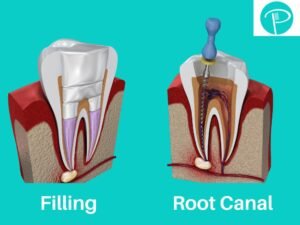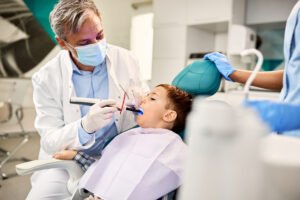By Dr. Sepehr Nassiripour, Little Smiles of Beverly Hills
I have decided to write the Parent’s Guide to Hydroxyapatite Toothpaste Brands, because I understand that as parents, you’re constantly striving to make the safest and most effective choices for your children’s health. Oral care is certainly no exception. For years, I’ve seen firsthand the incredible benefits of hydroxyapatite toothpaste—its remarkable natural compatibility with tooth enamel, its powerful remineralizing capabilities, and most importantly, its exceptional safety profile, especially for our youngest patients who are still learning to spit effectively.
Now that you’re likely familiar with what hydroxyapatite is and why it’s such a game-changer, the natural next question I often hear from parents is: “Dr. Nassiripour, which brand should I choose?”
The market for hydroxyapatite toothpaste is growing, and navigating the options can feel overwhelming. This complete guide is designed to empower you with the knowledge to understand what to look for and introduces common types of brands, helping you make an informed decision for your child’s radiant, healthy smile.
Why I Recommend Hydroxyapatite Toothpaste for Children: A Pediatric Dentist’s Perspective
My enthusiasm for hydroxyapatite in pediatric dentistry isn’t just based on trends; it’s rooted in its unique biochemical properties that align perfectly with the needs of developing smiles.
The Science Behind My Recommendation
Naturally Biocompatible — This is, in my professional opinion, its most compelling feature. Hydroxyapatite is literally the primary mineral (making up 97%) of your child’s tooth enamel and a significant component of their bones. This means the body recognizes it as its own, leading to seamless integration and repair without any concerns about foreign substances.
Actively Remineralizing & Powerful Cavity Prevention — Unlike some traditional methods that primarily strengthen existing enamel against acid, hydroxyapatite actively works to replenish lost mineral content. This means it can help rebuild and repair weakened enamel, often reversing those early “white spot” lesions (the first signs of decay) before they progress into full-blown cavities.
Non-Toxic & Exceptionally Safe to Swallow — This is paramount for our youngest patients. Accidental ingestion of fluoride toothpaste, especially in larger quantities over time, can lead to dental fluorosis. With hydroxyapatite, this concern is virtually eliminated, offering parents immense peace of mind.
Addresses Tooth Sensitivity — Many children experience transient tooth sensitivity, whether from erupting teeth, orthodontic adjustments, or after consuming hot/cold foods. Hydroxyapatite effectively works by physically plugging the microscopic tubules on exposed dentin, providing natural relief.
Contributes to a Healthier Oral Microbiome — While not its primary action, research suggests that nano-hydroxyapatite can help reduce the adhesion of plaque-forming bacteria to the tooth surface, contributing to a cleaner, healthier oral environment.
For a deeper dive into how hydroxyapatite works, I encourage you to read our previous blog post: Unlock Your Teeth’s Natural Power: A Deep Dive into Hydroxyapatite Toothpaste.
What I Advise Parents to Look for in Hydroxyapatite Toothpaste: A Detailed Checklist
Navigating the array of available brands requires a discerning eye. As your pediatric dental specialist, here’s a comprehensive checklist of factors I recommend considering:
1. The Crucial Distinction: Nano-Hydroxyapatite vs. Micro-Hydroxyapatite
This is the most critical factor influencing efficacy, and it’s something I always highlight to parents.
Nano-Hydroxyapatite (n-HA) — This is the gold standard. “Nano” refers to particles typically smaller than 100 nanometers. These incredibly tiny particles can penetrate and fill the microscopic pores, cracks, and fissures within the enamel structure. This deep penetration allows for:
- Superior remineralization
- Effective sealing of dentinal tubules (for sensitivity relief)
- A smoother enamel surface less prone to plaque adhesion
Micro-Hydroxyapatite (m-HA) — These larger particles (typically hundreds or thousands of nanometers) are beneficial for gentle polishing and surface cleaning but generally lack the ability to penetrate and integrate into the enamel structure with the same depth and effectiveness.
My Professional Recommendation: Always prioritize brands that explicitly state they contain nano-hydroxyapatite (n-HA). Look for percentages, with 5-10% n-HA being commonly cited in studies for optimal remineralization benefits.
2. Supporting Beneficial Ingredients
Beyond hydroxyapatite, certain additional ingredients can significantly enhance a toothpaste’s overall benefits:
- Xylitol — This natural sugar alcohol effectively inhibits Streptococcus mutans, the primary bacteria responsible for tooth decay
- Natural Flavors & Sweeteners — Look for mild, child-friendly flavors derived from natural sources
- Calcium Glycerophosphate — Provides additional calcium and phosphate ions to support remineralization
- Soothing Agents — Ingredients like aloe vera or chamomile extract benefit sensitive gums
3. What to Avoid: Ingredients I Advise Skipping
- Fluoride (if seeking a fluoride-free option) — Check labels carefully as some “hybrid” toothpastes contain both
- Artificial Colors, Flavors, and Sweeteners — Often unnecessary additives many parents prefer to avoid
- Sodium Lauryl Sulfate (SLS) — Can cause irritation or trigger canker sores in sensitive individuals
- Harsh Abrasives — Excessive levels can wear down delicate enamel over time
- Parabens, Triclosan, Carrageenan — Chemicals health-conscious parents often choose to avoid
Clinical Evidence Supporting My Recommendations
Clinical studies have consistently shown that toothpastes containing nano-hydroxyapatite (at effective concentrations of 5-10%) provide comparable remineralization benefits to fluoride toothpastes in preventing and repairing early enamel lesions, particularly in pediatric populations.

Understanding Different Brand Profiles in the Market
The hydroxyapatite toothpaste market is diverse, with brands often specializing in different niches. Here’s a guide to help you understand the types of products you might encounter:
Parent’s Guide to Hydroxyapatite Toothpaste Brands: Profile Comparison Chart:
| Brand Profile Type | Key Features | Ideal For | Typical Nano-HA % |
|---|---|---|---|
| “Gentle First Teeth” | Very mild/unflavored, no SLS, no fluoride, clear gel | Babies/toddlers, swallowing concerns, sensitive gums | 5% |
| “Kids’ Fun Flavor” | Natural berry/bubblegum flavors, xylitol, no artificial colors | Picky eaters, making brushing enjoyable | 5-7% |
| “Eco-Conscious Choice” | Sustainably sourced, recyclable packaging, vegan/cruelty-free | Environmentally-minded parents | 7-10% |
| “Advanced Repair & Sensitivity” | Higher nano-HA concentration, soothing agents | Moderate to severe sensitivity, active remineralization needs | 10-15% |
| “Whitening & Surface Polish” | Nano-HA with polishing agents, promotes enamel gloss | Teens/adults with cosmetic concerns | 7-10% |
| “Comprehensive Oral Health” | Nano-HA, xylitol, prebiotics, mild essential oils | Advanced all-around oral health benefits | 7-10% |
Research indicates that xylitol, often found in conjunction with hydroxyapatite in children’s toothpastes, significantly reduces cavity-causing bacteria in the mouth, adding another layer of defense against decay.
Age-Specific Recommendations for Optimal Results
As children grow, their oral hygiene needs and abilities evolve. Here’s my professional guide for different developmental stages:
Parent’s Guide to Hydroxyapatite Toothpaste Brands: Comprehensive Age-Based Usage Chart
| Age Group | Developmental Considerations | Recommended Amount | Toothpaste Features | Brushing Guidance |
|---|---|---|---|---|
| 0-12 months | First teeth, tendency to swallow | Smear (rice grain size) | Unflavored/very mild, fluoride-free, no SLS | Parent brushes twice daily with soft infant brush |
| 1-3 years | More teeth, learning to spit | Smear (rice grain size) | Mild natural flavors, kid-friendly packaging | Parent does thorough brushing, teach spitting |
| 3-6 years | Full primary teeth, better dexterity | Pea-sized amount | Kid-friendly flavors, still fluoride-free preferred | Supervise closely, encourage independent attempts |
| 6+ years | Mixed dentition, increasing independence | Pea-sized amount | Child’s preferred flavor, nano-HA emphasis | Encourage independence but supervise twice daily |
Common Questions from Parents
As a pediatric dentist, I frequently address these concerns about hydroxyapatite toothpaste:
Parent’s Guide to Hydroxyapatite Toothpaste Brands:Frequently Asked Questions
| Question | My Professional Answer |
|---|---|
| “Is it safe for babies?” | Yes, very safe. Since hydroxyapatite is naturally present in teeth and bones, it poses no risk if swallowed, making it excellent for baby’s first teeth. |
| “Does it prevent cavities as well as fluoride?” | Clinical studies using nano-hydroxyapatite show comparable efficacy in remineralizing early lesions and preventing decay through rebuilding rather than converting enamel. |
| “Can my child use it with braces?” | Absolutely! Hydroxyapatite is highly beneficial for children with braces, helping strengthen enamel around brackets and reducing orthodontic sensitivity. |
| “Does it taste different?” | Many hydroxyapatite toothpastes have mild, natural flavors or are unflavored. Children often prefer them to strong mint flavors. |
| “Is it more expensive?” | Often yes, due to specialized nano-hydroxyapatite. Consider it an investment in superior safety and active remineralization, potentially reducing future restorative needs. |
When Hydroxyapatite Toothpaste is Particularly Beneficial
While beneficial for all children, there are specific scenarios where I especially recommend hydroxyapatite toothpaste:
Parent’s Guide to Hydroxyapatite Toothpaste Brands: Specific Clinical Scenarios
| Scenario | Why Hydroxyapatite Excels |
|---|---|
| Children who swallow toothpaste | No risk of fluorosis or other issues—essential for toddlers and young children |
| Presence of “white spots” | Can actively remineralize these early lesions, potentially reversing them before cavities form |
| Tooth sensitivity | Effectively plugs exposed dentinal tubules for natural, long-lasting relief |
| Low cavity risk wanting fluoride-free | Provides effective, natural alternative for enamel strengthening |
| Dry mouth conditions | Provides necessary minerals when saliva might be less effective |
| Chemical sensitivity concerns | Many brands are free from SLS, artificial additives, and other chemicals |
Studies involving nano-hydroxyapatite have demonstrated its ability to reduce bacterial adhesion to enamel surfaces, contributing to measurably decreased plaque formation over time.
My Final Professional Advice
Choosing the right toothpaste is an important part of your child’s oral health journey. As your pediatric dentist, I want to emphasize these key points:
Essential Guidelines for Parents
Be a Label Detective — Always read ingredient lists thoroughly. Look for “nano-hydroxyapatite” or “n-HA” explicitly stated, not just marketing claims.
Match Your Child’s Unique Needs — Consider whether your child swallows toothpaste, experiences sensitivity, or has early white spots. These factors heavily influence which product profile suits them best.
Trial and Error is Acceptable — Purchase smaller tubes first to test your child’s reaction and preferences before committing to larger sizes.
Consistency is Paramount — The most critical factor in preventing cavities is consistent, proper brushing technique twice daily for two minutes, regardless of toothpaste brand.
Consult Our Team — We’re your dedicated partners in your child’s oral health! Bring questions about specific brands or ingredients to your next appointment for personalized recommendations.
Supporting Resources
For additional guidance on pediatric oral health:
- Make Brushing Fun: Tips for Parents
- Understanding Remineralisation of Teeth
- Fluoride Therapy Research
Ready to Make the Best Choice for Your Child?
Embracing the power of hydroxyapatite toothpaste can be a fantastic, safe, and effective step towards harnessing your child’s natural dental strength. With this comprehensive guide and our ongoing support, I trust you will feel confident in providing superior care, nurturing their smile for a lifetime of health and happiness.
A key advantage highlighted in dental research is the non-toxic nature of ingested hydroxyapatite, which virtually eliminates the risk of dental fluorosis—a significant concern for pediatric dentists when advising on fluoride use in young children.
We look forward to seeing your little one’s brilliant smile at their next visit!
Dr. Sepehr Nassiripour and The Little Smiles of Beverly Hills Team
For personalized recommendations or to schedule your child’s next appointment, contact Little Smiles of Beverly Hills today. We’re here to support your family’s journey to optimal oral health.



